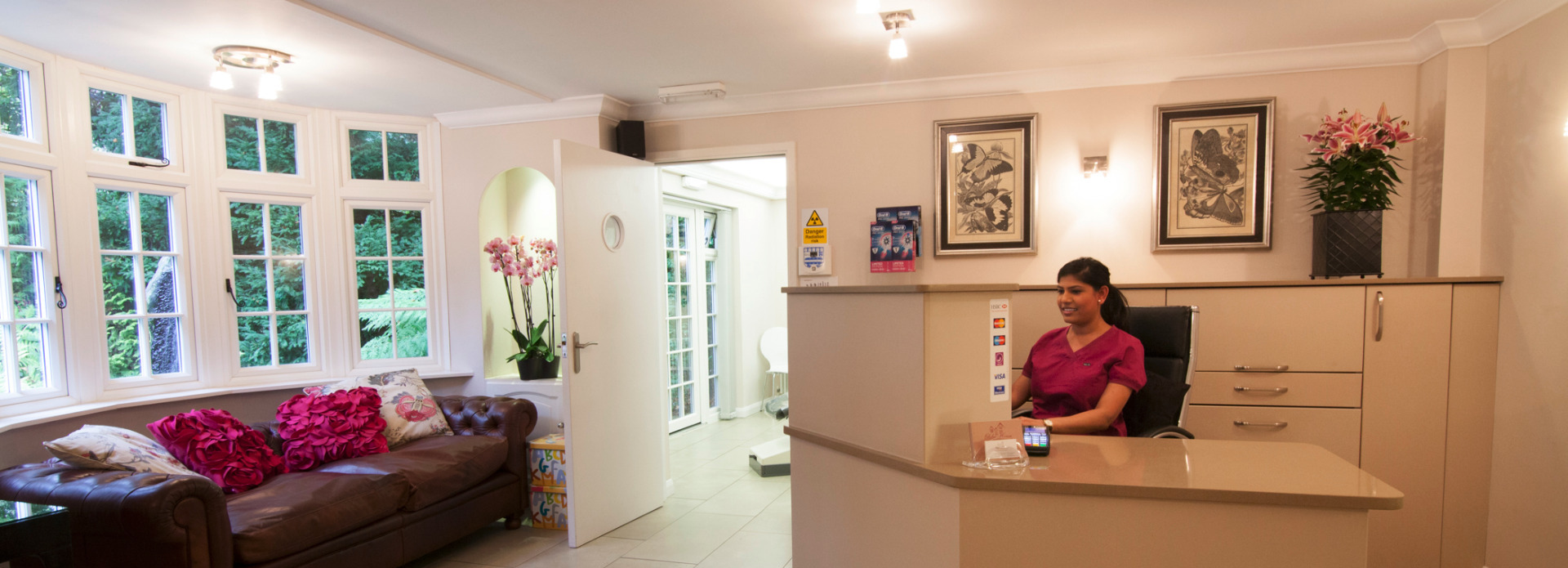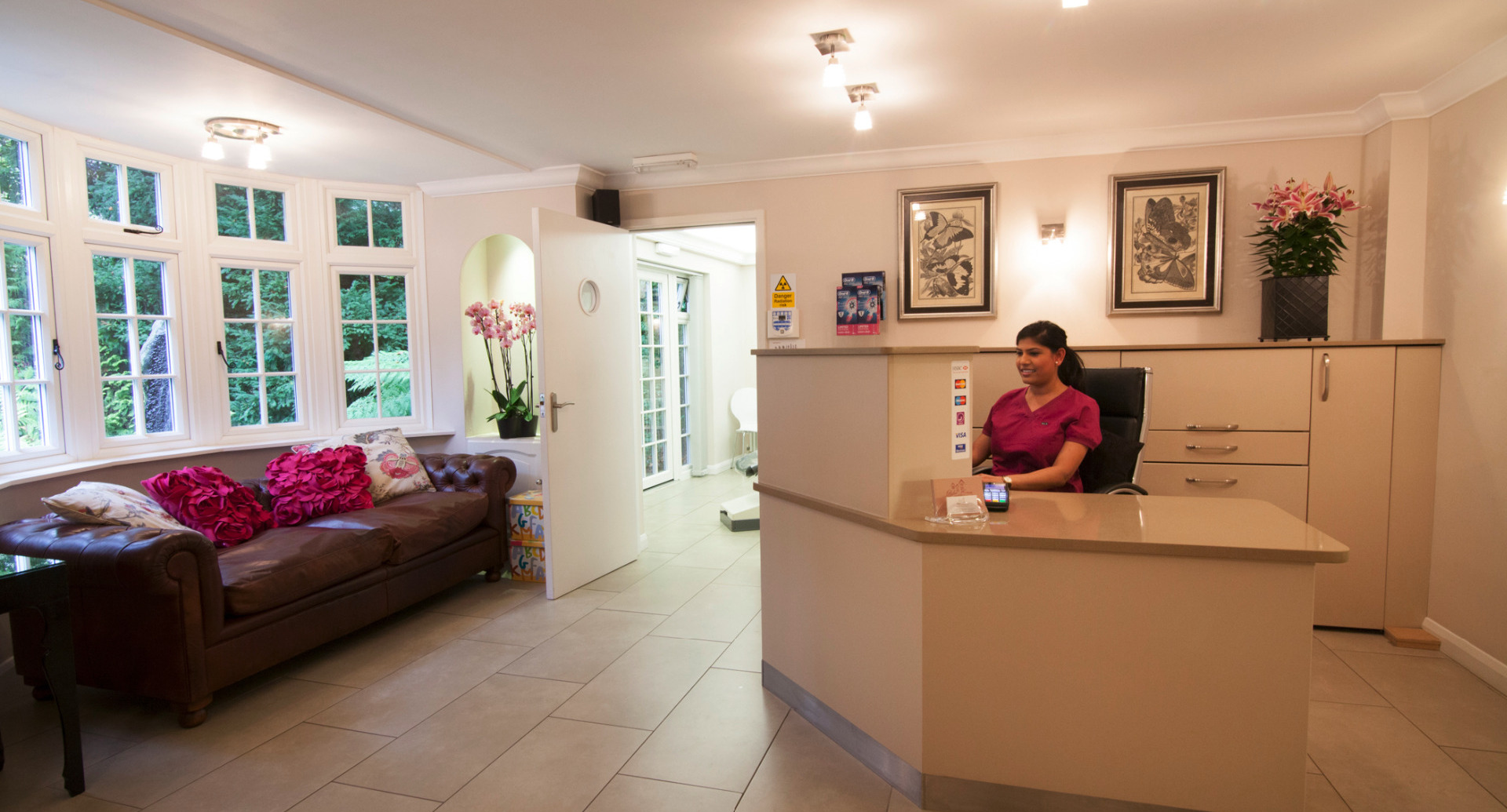Implants
we look forward to welcoming new patients to our dental practice in Virginia Water, Surrey

What are dental implants?
Dental implants are an artificial replacement for a tooth’s root. They fit directly into your jawbone and can hold crowns, bridges or false teeth in place, in the same way that roots support natural teeth. They are usually made from titanium.
At Glebe House Dental Care we are privileged to have a Dr Hendrik van Jaarsveld, who is a very experienced periodontal specialist, to provide dental implants for our patients.
Frequently asked questions about dental implants
Are implants safe and how long will they last?
Implants are a safe, well-established treatment. It's probably true to say that implants, much like natural teeth, will last for as long as you care for them. Good oral hygiene is vital to make sure that your implants last as long as possible. You will have to brush and floss your teeth and gums (including your implant supported teeth) every day. You may need special floss or interdental toothbrushes which we can advise you on.
If you don't look after your implants they will develop a coating (plaque) similar to what you get on neglected natural teeth. Left untreated, this can lead to gum infection, bleeding, soreness, loss of bone around the implant and potentially the loss of the implant.
If your implants are well looked after, and if the bone they are fitted too is strong and healthy, you can expect them to last for many years. However, just as with other surgical implants (such as a hip replacement) there is no lifetime guarantee.
I have some of my own teeth. Can I still have implants?
Yes. You can have any number of teeth replaced with implants - from one single tooth to a complete set.
Can implants always be used to replace missing teeth?
It depends on the condition of the bone in your jaw. X-rays and CBCT (cone beam computed tomography) scans can be used to assess this. If there is not enough bone, or if it isn't healthy enough, it may not be possible to place implants without grafting bone into the area first.
Do implants hurt?
Placing an implant is often easier than taking a tooth out and is usually done using a simple local anaesthetic. You will not feel any pain at the time but, just like after an extraction, you may feel some discomfort during the week after the surgery and occasionally minor swelling and some bruising.
if you are very nervous or if the case is a complicated one it can be arranged that you have sedation during the placement of the implant. General anaesthetics are rarely used for implants and are generally only used for very complicated cases.
What happens next?
After your implants have been placed, the bone in your jaw needs to grow onto them and fuse to them (osseointegration). This usually takes 3 to 6 months. A ‘healing cap' will usually be placed onto the implant during this period of osseointegration and temporary dentures or bridgework can be worn as appropriate. If you already have full dentures, you can keep wearing these while your implants are healing. Your dentures will need altering, to fit properly after the surgery. Once integrated the implant/s can be brought into function with a variety of final restorations ranging from a single crown, small or large bridge or a removable overdenture.
Are the implant teeth difficult to clean?
No, but aftercare is important if you are going to have a long-lasting, successful implant. Cleaning around the teeth attached to the implants is usually no more difficult than cleaning natural teeth. There may sometimes be areas that are more difficult to reach, and you'll be shown how to clean them during our hygiene appointments.
If I had gum disease when I had my own teeth, will I get it with the implants?
Yes, if you don't care for them well enough. If you keep them clean and have them regularly checked by your dental team you should not have any problems. Smoking also affects the longevity of implants and is generally a contra-indication for having implants.
Can I take the teeth out if they are fixed to implants?
Most teeth attached to implants can only be fitted and removed by the dentist. However, if you have removable dentures attached to the implants, you'll be able to take them out for cleaning.
Do the implants show?
Most implants look exactly like natural teeth.
Do I have an implant for each missing tooth?
Dental implants can be used to replace one or several missing teeth. All the common forms of tooth replacement, such as crowns, bridges or dentures can be supported by dental implants.
What happens if the implant does not fuse with the bone?
This happens very rarely. In general the success rate for dental implants is 95%. If the implant becomes loose during the healing period, or just after, it is easily removed and your jaw will heal in the normal way. Once your jaw has healed, another implant can be placed there.
How much will it cost?
The cost can vary, depending on the degree and extend of treatment required. The full cost will therefore be explained and confirmed in a written treatment plan. In many situations, the cost of the treatment is only a little more than the cost of more conventional dental treatment with crowns and bridges. Over the longer term, implants are usually a more cost-effective and satisfactory option.
There are other advantages to implants, too. If you have an implant to replace a single tooth, there is no need to cut down (damage) healthy teeth on either side of the gap, which would be necessary if you were to have a conventional bridge.
Normal dentures often mean that your eating and drinking are affected because the dentures may move about. But dentures attached to an implant don't cause this problem, because they are anchored/fixed to the implants.

MAKING AN APPOINTMENT
Tel: 01344 844507 please do leave a message if we do not answer immediately and we will return your call as soon as possible.
Alternatively, please complete our online form.
New patients welcomed at our dental practice in Virginia Water, Surrey

WONDERFUL SERVICE
The practice is very professional and friendly, and Chris puts a patient at ease, and I would recommend the practice to friends. As my husband has Parkinsons, there is always a caring atmosphere.






